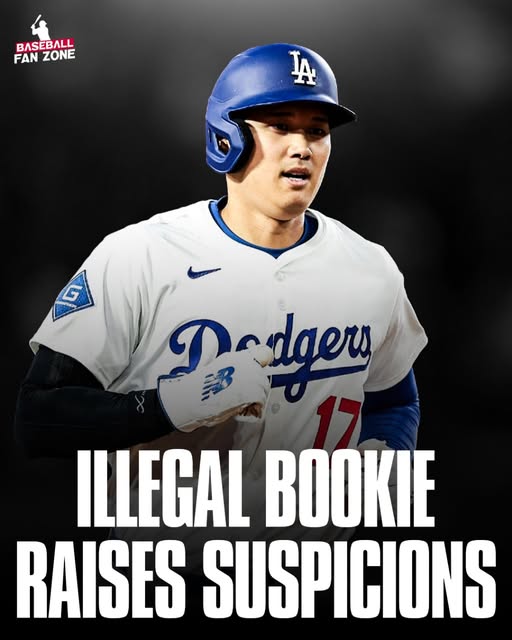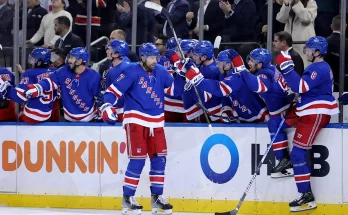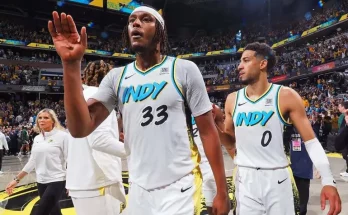The world of Major League Baseball was rocked when news broke that Shohei Ohtani’s longtime interpreter, Ippei Mizuhara, had embezzled nearly $17 million from the Los Angeles Dodgers superstar to pay off debts to an illegal bookmaker. While federal prosecutors were quick to clear Ohtani of wrongdoing, the association with a shady offshore gambling ring has raised eyebrows across the sports world. The involvement of bookmaker Matthew Bowyer has triggered new suspicions—not only about the scandal itself, but also about the broader vulnerabilities that face athletes at the top of their game.
As the Dodgers try to navigate their 2025 season with the two-way sensation leading the way, fans, pundits, and insiders are all asking the same question: how could this have happened under the radar for so long? And could there be more to the story?
The Relationship That Broke the Bank
Shohei Ohtani and Ippei Mizuhara weren’t just colleagues—they were inseparable. Mizuhara served as Ohtani’s interpreter since his MLB debut in 2018, first with the Angels and then following him to the Dodgers. Fluent in both Japanese and English, Mizuhara was Ohtani’s voice, shadow, and cultural liaison in a league dominated by American media. For years, the public viewed them as an inseparable duo—perhaps one of the most trusted partnerships in modern sports.
Behind the scenes, however, Mizuhara was orchestrating a betrayal of shocking scale. According to court documents, he impersonated Ohtani dozens of times over the phone to authorize unauthorized wire transfers from Ohtani’s personal bank accounts. The scheme—spanning multiple years—went unnoticed until March 2024, when discrepancies in Ohtani’s financial statements led to an internal investigation.
The Bookmaker: Matthew Bowyer and the Offshore Empire
The money embezzled from Ohtani didn’t just disappear. It found its way into the hands of Matthew Bowyer, a known illegal bookmaker operating out of Las Vegas with connections to offshore gambling centers in Costa Rica. Bowyer’s operation used sophisticated call centers and websites to skirt U.S. betting laws, accepting bets from high-profile clients, including professional athletes.
Bowyer’s name has long been on the radar of federal law enforcement, but his association with Ohtani’s interpreter elevated the stakes. Reports indicated that Bowyer was well aware of Mizuhara’s identity and role with Ohtani, yet continued accepting large sums in payments—further suggesting an operation that thrived on reckless disregard for legality or ethics.
It wasn’t until Mizuhara’s lavish lifestyle and Bowyer’s mounting digital footprint began to intersect that law enforcement was able to uncover the financial web. Mizuhara was sentenced to 57 months in federal prison, and Bowyer now faces a laundry list of criminal charges, including operating an illegal gambling business, money laundering, and conspiracy to defraud.
Why Ohtani Was Cleared—But Doubts Linger
Federal investigators were quick to emphasize that Shohei Ohtani was a victim in the scandal, not a participant. Prosecutors stated unequivocally that Ohtani had no knowledge of the embezzlement, had not placed any bets himself, and had cooperated fully with the investigation.
Still, for some observers, doubts remain. How could a player as high-profile as Ohtani not notice nearly $17 million missing from his accounts over such a long period? Why was a personal interpreter granted such unrestricted access to sensitive banking information?
Baseball players often delegate financial oversight to trusted aides or management teams. In Ohtani’s case, however, that delegation became a liability. Mizuhara’s intimate role allowed him to exploit not only trust but also logistical gaps in Ohtani’s financial ecosystem. And that very intimacy has left some wondering whether more vetting—or oversight—might have prevented the scandal.
Media Frenzy and Fan Reactions
The scandal dominated headlines for weeks. Social media exploded with theories, hot takes, and speculation about Ohtani’s potential involvement. While most fans rallied around the Dodgers star, others expressed concern that such a massive financial breach could occur without his knowledge.
Dodgers fans, in particular, voiced a mix of support and dismay. While Ohtani’s talent on the field is unquestionable, the off-field drama added an uncomfortable layer of distraction to a franchise already grappling with expectations of a World Series title. With Ohtani in the first year of his record-breaking $700 million contract, the spotlight has never been brighter—or more scrutinizing.
The Fallout for the Dodgers Organization
Although Ohtani was cleared, the Dodgers organization hasn’t emerged unscathed. Questions about internal protocols, support staff, and personal security have circulated throughout the league. Should teams be doing more to protect their players from financial fraud? Should personal associates like interpreters be subjected to stricter background checks or ethical training?
The Dodgers have since conducted a full internal review, revamped access protocols, and established a financial security team to monitor high-profile player accounts. But the damage to public trust—and the discomfort of proximity to scandal—will take longer to repair.
Shohei Ohtani’s Public Statement: “I Trusted Him”
In an emotional press conference, Ohtani addressed the media shortly after Mizuhara’s arrest.
“I’m deeply hurt,” he said. “Ippei was someone I trusted with my words, my life, and my career. I never imagined he would do something like this. I trusted him completely.”
Ohtani’s vulnerability resonated with many fans. His reputation as a humble, dedicated athlete only deepened the public’s empathy. Still, the incident has introduced a layer of caution into his public image—an unintentional but inevitable result of such a high-profile betrayal.
Bowyer’s Bigger Web: Are More Athletes Involved?
Federal documents suggest that Bowyer’s gambling operation wasn’t limited to Mizuhara. A broader investigation has revealed that other athletes may have placed bets—some knowingly, others unknowingly—through the same offshore platforms. While no other names have been publicly released, MLB and the NFL have both launched internal reviews to determine whether players or staff were involved.
This revelation has reignited debates about sports betting in professional leagues. While betting is now legal in many states, league policies remain strict, especially for active players. Even the perception of impropriety can be enough to trigger fines, suspensions, or worse.
A League-Wide Wake-Up Call
Commissioner Rob Manfred called the scandal “a serious and unfortunate wake-up call” for the league. In response, MLB has proposed several reforms:
- Mandatory financial literacy training for international players
- Stricter background checks for all team-affiliated personnel
- Enhanced digital surveillance of large player wire transfers
- A task force dedicated to investigating potential gambling ties
While these measures may prevent future incidents, they also underscore how exposed many athletes remain—even in a league as regulated and media-saturated as MLB.
The Psychological Toll on Ohtani
For all the financial and legal chaos, perhaps the most profound impact has been psychological. Those close to Ohtani describe a changed man—still focused, still driven, but more withdrawn, more guarded. It’s not easy to rebound from betrayal by someone who was, for all intents and purposes, family.
Sports psychologists working with athletes often note that trust violations—especially by inner-circle figures—can have lasting effects on performance and mental health. The Dodgers are reportedly providing Ohtani with access to round-the-clock support as he continues to navigate the aftermath.
The Bigger Conversation: Athlete Vulnerability
If a global superstar like Shohei Ohtani—surrounded by agents, managers, and PR handlers—can fall victim to internal fraud, what does that say about lesser-known athletes? The Mizuhara scandal has ignited a wider conversation about athlete vulnerability, particularly for international players who must navigate language barriers, immigration systems, and massive cultural shifts.
Many teams are now reassessing the role of interpreters, personal assistants, and financial managers. What was once seen as a perk of stardom is now being treated as a potential liability—a shift that could reshape how franchises handle player support going forward.
Moving Forward: Redemption and Refocus
For Ohtani, the path forward is clear: keep playing, keep dominating, and keep showing the world why he’s the face of modern baseball. On the field, his performance has remained elite, even as whispers and rumors swirl in the background.
In many ways, Ohtani’s ability to maintain focus under such intense scrutiny is a testament to his mental fortitude. With the Dodgers off to a hot start in the 2025 season, the hope is that winning—and perhaps a deep October run—will help turn the page.



